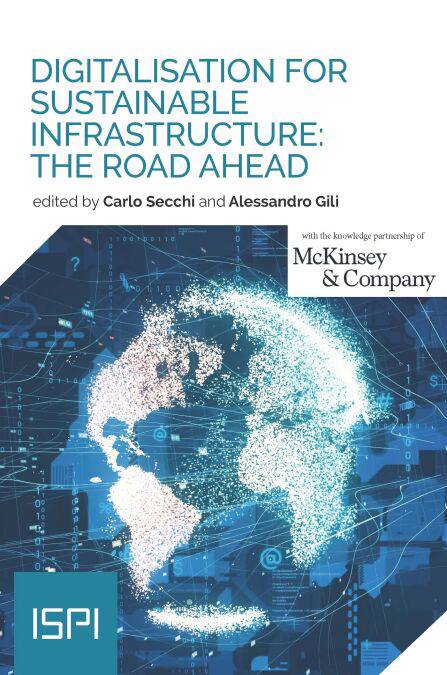
- Afhalen na 1 uur in een winkel met voorraad
- Gratis thuislevering in België vanaf € 30
- Ruim aanbod met 7 miljoen producten
- Afhalen na 1 uur in een winkel met voorraad
- Gratis thuislevering in België vanaf € 30
- Ruim aanbod met 7 miljoen producten
Zoeken
Digitalisation for Sustainable Infrastructure: The Road Ahead E-BOOK
Carlo Secchi, Alessandro Gili
E-book | Engels
€ 8,99
+ 8 punten
Omschrijving
In today's tumultuous and fast-changing times, digitalisation and technology are game changers in a wide range of sectors and have a tremendous impact on infrastructure. Roads, railways, electricity grids, aviation, and maritime transport are deeply affected by the digital
and technological transition, with gains in terms of competitiveness, cost-reduction, and safety. Digitalisation is also a key tool for fostering global commitment towards sustainability, but the race for digital infrastructure is also a geopolitical one. As the world's largest economies are starting to adopt competitive strategies, a level playing field appears far from being agreed upon.
Why are digitalisation and technology the core domains of global geopolitical competition? How are they changing the way infrastructure is built, operated, and maintained? To what extent will road, rail, air, and maritime transport change by virtue of digitalisation, artificial intelligence, and the Internet of Things? How to enhance cyber protection for critical infrastructure? What are the EU's, US' and China's
digital strategies?
and technological transition, with gains in terms of competitiveness, cost-reduction, and safety. Digitalisation is also a key tool for fostering global commitment towards sustainability, but the race for digital infrastructure is also a geopolitical one. As the world's largest economies are starting to adopt competitive strategies, a level playing field appears far from being agreed upon.
Why are digitalisation and technology the core domains of global geopolitical competition? How are they changing the way infrastructure is built, operated, and maintained? To what extent will road, rail, air, and maritime transport change by virtue of digitalisation, artificial intelligence, and the Internet of Things? How to enhance cyber protection for critical infrastructure? What are the EU's, US' and China's
digital strategies?
Specificaties
Betrokkenen
- Auteur(s):
- Uitgeverij:
Inhoud
- Aantal bladzijden:
- 386
- Taal:
- Engels
Eigenschappen
- Productcode (EAN):
- 9788855267915
- Verschijningsdatum:
- 23/11/2022
- Uitvoering:
- E-book
- Beveiligd met:
- Digital watermarking
- Formaat:
- ePub

Alleen bij Standaard Boekhandel
+ 8 punten op je klantenkaart van Standaard Boekhandel
Beoordelingen
We publiceren alleen reviews die voldoen aan de voorwaarden voor reviews. Bekijk onze voorwaarden voor reviews.











